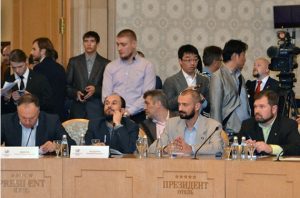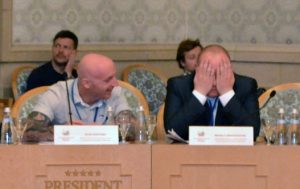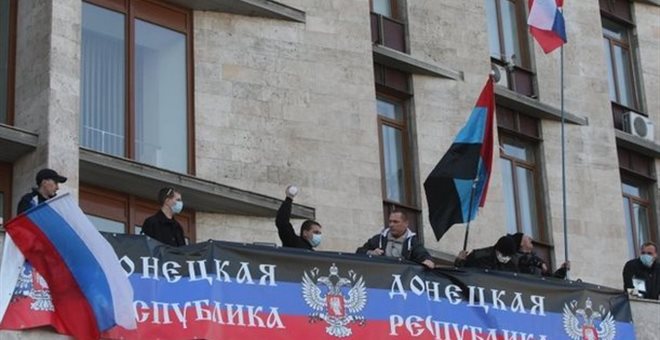Yesterday in Moscow at an event organized by the Anti-Globalist Movement of Russia but paid for by the Kremlin, leaders of separatist movements from around the world, some serious, some entirely frivolous, assembled, denounced "American imperialism," and elected Syria’s Bashar Assad and Iran’s Mahmud Ahmadinejad to its presidium.
There were representatives from Hawaii, Puerto Rico and Texas, from Catalonia and Northern Ireland, from Ukraine and the Western Sahara, as well as from groups that declared they sought not separate states but the amalgamation of existing states, in this case, Russia, Belarus and Ukraine, into a single one.
But there were two prominent exceptions to the invitation list: No one was invited from any group in the Russian Federation where any call even for having the country live up to its own constitution is treated as a criminal act of “promoting separatism,” and no one came from separatist movements in the few countries Russia still has good ties with, like China.

“Never in the history of humanity,” the meeting’s organizers declared, “have assembled in one place so many rights defenders who represent national liberation movements and parties from various countries.” But Russian speakers quickly made it clear that the meeting was not about self-determination but about alliances with Russia against the United States.
Fedor Biryukov of Rodina, who was one of the organizes of the conference of European national radicals and neo-Nazis in St. Petersburg earlier this year, told those assembled that “we are attempting to embrace everyone both right and left” who support Russia in its struggle with the West.

“Russia,” the Russian nationalist continued, “has shown how to successfully defend sovereignty. According to Russian cosmogony, the West is twilight,” while Russia is the dawn. “Everyone who wants to see over him the sun and not a bloody moon, he is in spirit a Russian!”
That was likely news even to the Texans, Hawaiians and Puerto Ricans at the meeting, but later, when Biryukov was asked about the meeting, he said that it was not about national-liberation movements but about “opposition to Washington.” Russia, he said, “must support its allies,” just as it must oppose any separatism within Russia.
In short, as Nikita Girin of “Novaya gazeta” pointed out, “the participants of ‘the congress of separatists’ turned out to be inseparable from the [Russian] state.”




